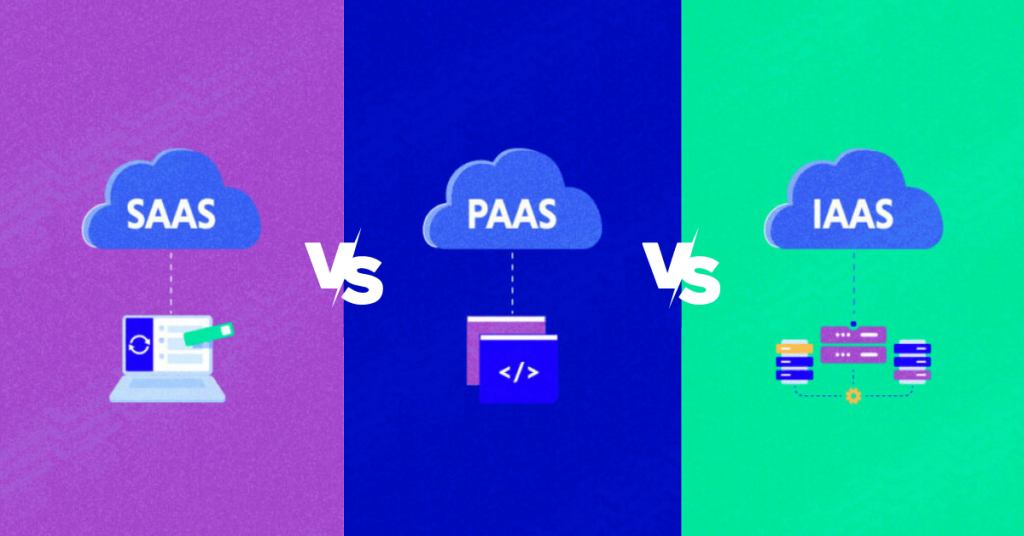Running a profitable freelance business is not just about making money. It’s about creating a thriving career that brings you joy, fulfillment, and the freedom to live life on your terms. It’s about turning your passion and skills into a sustainable and lucrative venture.
In this blog post, we will dive deep into eleven invaluable tips that will empower you to run a profitable freelance business and unlock new levels of success. Whether you’re a seasoned freelancer or just starting your journey, these tips will equip you with the knowledge and strategies you need to thrive in the competitive freelance landscape.
Running a profitable freelance business is a goal for many freelancers. It allows you to not only sustain yourself financially but also provides opportunities for growth and expansion. In this blog post, we will discuss ten valuable tips to help you run a profitable freelance business and achieve sustainable growth. Whether you’re just starting out or looking to take your freelance career to the next level, these tips will provide you with valuable insights and strategies to succeed.
Are you ready to dive in? Let’s get started on the path to running a profitable freelance business and unlocking your true potential. Together, we’ll navigate the intricacies, seize opportunities, and make your freelance dreams a reality.
Get ready to embrace the journey ahead and carve your own path to freelance success.
Tips To Run a Profitable Freelance Business And Grow
1. Define Your Niche
One of the key factors in running a profitable freelance business is specializing in a specific niche. By defining your niche, you can position yourself as an expert in that particular field, attracting clients who value your expertise. Here’s how you can define your niche:
1. Identify your skills and passions
Take some time to evaluate your skills, experiences, and areas of expertise. Determine the areas where you excel and enjoy working the most. This self-assessment will help you identify your core strengths and find your niche.
2. Research market demand and competition
Once you have identified your potential niche, it’s important to research the market demand and competition within that niche. Look for industries or sectors where there is a high demand for freelance services. Analyze the competition to find your unique selling proposition and differentiate yourself from others in your niche.
2. Build a Strong Online Presence
In today’s digital age, having a strong online presence is crucial for any freelance business. Here’s how you can build a strong online presence:
1. Create a professional website
A professional website serves as your online portfolio and a central hub for showcasing your work and services. Invest in creating a well-designed, user-friendly website that reflects your brand and highlights your expertise. Include a portfolio of your best work, client testimonials, and a clear call to action for potential clients to contact you.
2. Optimize your website for search engines
Search engine optimization (SEO) techniques can help improve your website’s visibility in search engine results. Conduct keyword research to identify relevant keywords and incorporate them naturally into your website content, meta tags, and headings. Optimize your website’s loading speed, mobile responsiveness, and user experience to provide a seamless browsing experience for visitors.
3. Leverage social media platforms
Social media platforms provide an excellent opportunity to promote your freelance business, reach a wider audience, and engage with potential clients. Identify the social media platforms that align with your target audience and create professional profiles on those platforms. Share valuable content, industry insights, and examples of your work to establish yourself as an expert in your niche. Engage with your audience by responding to comments, answering questions, and participating in relevant discussions.
3. Develop a Brand Identity
To stand out in a competitive freelance landscape, it’s essential to develop a strong brand identity. Here’s how you can develop your brand identity:

1. Craft a unique brand
Define your brand values, personality, and mission. Determine what sets you apart from your competitors and how you want to be perceived by your target audience. Consider your niche, target market, and the emotions you want your brand to evoke.
2. Design a professional logo
A well-designed logo plays a crucial role in brand recognition and visual identity. Invest in a professional logo that reflects your brand’s personality and resonates with your target audience. Hire a graphic designer or use online design tools to create a logo that represents your brand effectively.
3. Use consistent branding elements
Consistency is key when it comes to branding. Use consistent colors, fonts, and visual elements across all your marketing materials, including your website, social media profiles, business cards, and email newsletters. Consistent branding helps create a cohesive and memorable brand image.
4. Set Clear Goals and Strategies
Running a profitable freelance business requires clarity and direction. Here’s how you can set clear goals and strategies:
1. Define short-term and long-term goals
Take the time to define your short-term and long-term goals. Short-term goals can be focused on acquiring new clients, completing specific projects, or improving specific skills. Long-term goals may include expanding your client base, increasing your income, or achieving a specific milestone in your freelance career. Ensure that your goals are specific, measurable, attainable, relevant, and time-bound (SMART goals).
2. Break down goals into actionable steps
Once you have defined your goals, break them down into smaller, manageable tasks. Identify the specific actions you need to take to achieve each goal. This will help you stay organized, track your progress, and maintain momentum as you work towards your goals.
3. Create a business plan
Developing a business plan is a valuable exercise for any freelancer. Outline your strategies, target market, marketing tactics, financial projections, and any other important elements of your business. A well-crafted business plan provides a roadmap for success, helping you stay focused and make informed decisions as you grow your freelance business.
5. Establish a Professional Network
Building a professional network is crucial for the growth of your freelance business. Here’s how you can establish a professional network:
1. Attend industry events, conferences, and meetups
Participate in industry events, conferences, and local meetups to connect with peers, potential clients, and industry influencers. These events provide excellent opportunities to network, exchange ideas, and build relationships with others in your field.
2. Join online communities and forums
In addition to physical events, there are numerous online communities and forums where freelancers gather to share insights, ask questions, and collaborate. Find niche-specific online communities and actively participate in discussions. Offer helpful advice, share your expertise, and build relationships with fellow freelancers and potential clients.
3. Collaborate with other freelancers or businesses
Consider collaborating with other freelancers or businesses in complementary fields. Look for opportunities to work together on projects or refer clients to each other. Collaborations can help you expand your reach, tap into new networks, and offer comprehensive solutions to clients.
6. Nurture Client Relationships
Client relationships are the backbone of any successful freelance business. Here’s how you can nurture client relationships:

1. Provide exceptional customer service
Exceptional customer service is key to building trust and loyalty with your clients. Be responsive, reliable, and attentive to their needs. Respond to client inquiries promptly, meet deadlines, and communicate proactively. Make your clients feel valued and prioritize their satisfaction.
2. Regularly communicate with clients
Maintain open lines of communication with your clients. Regularly check in with them to understand their project requirements, address any concerns, and provide progress updates. Effective communication helps build strong relationships and ensures that you deliver work that aligns with your client’s expectations.
3. Offer personalized solutions
Tailor your services to meet each client’s specific needs. Take the time to understand their unique requirements and challenges. Provide customized solutions and recommendations that address their pain points. By offering personalized service, you demonstrate your commitment to their success and differentiate yourself from competitors.
7. Develop Effective Pricing Strategies
Determining the right pricing for your freelance services is crucial to running a profitable business. Here’s how you can develop effective pricing strategies:
1. Conduct market research
Research the market rates and pricing in your niche. Analyze what your competitors are charging for similar services. This will give you a better understanding of the industry standards and help you position your pricing competitively.
2. Consider your experience and expertise
Take into account your level of experience, expertise, and the value you provide to your clients. If you have specialized skills or a unique approach, you can justify charging higher rates than others in your niche. Consider the value you bring to your client’s businesses and the impact your services can have on their success.
3. Offer different pricing packages
To cater to a wider range of clients and accommodate different budgets, consider offering different pricing packages or options. This can include tiered packages with varying levels of service or customizable options that allow clients to choose specific services they need. Providing flexibility in your pricing can attract a broader client base and increase your chances of securing projects.
8. Efficient Time Management
As a freelancer, time is a valuable asset. Efficient time management allows you to maximize productivity and focus on revenue-generating activities. Here’s how you can manage your time effectively:
1. Prioritize tasks
Identify high-priority tasks that directly contribute to your business goals and tackle them first. By focusing on the most important and urgent tasks, you ensure that you are using your time efficiently and effectively.
2. Utilize time management tools and techniques
Take advantage of various time management tools and techniques to stay organized and on track. Use calendars, task management apps, and to-do lists to plan your work, set deadlines, and track your progress. Time-tracking apps can help you gain insights into how you are spending your time and identify areas where you can improve efficiency.
3. Delegate or outsource non-core tasks
To free up your time for revenue-generating activities and tasks that require your expertise, consider delegating or outsourcing non-core tasks. This can include administrative tasks, marketing activities, or specific project components. Outsourcing or hiring freelancers to handle these tasks allows you to focus on the areas where your skills are most valuable.
9. Continuously Upgrade Your Skills
The freelance industry is constantly evolving, and staying updated with the latest trends and advancements is vital for long-term success. Here’s how you can continuously upgrade your skills:
1. Stay updated with industry trends
Make it a habit to stay informed about the latest industry trends, developments, and emerging technologies. Subscribe to relevant industry publications, follow thought leaders on social media, and participate in webinars or online courses that provide insights into your niche.
2. Invest in professional development
Allocate time and resources to invest in your professional development. Take courses, attend workshops or conferences, or pursue certifications that enhance your skills and expand your knowledge. By staying ahead of the curve, you position yourself as an expert in your field and offer added value to your clients.
3. Expand your services
Consider expanding your service offerings to meet the changing needs of your clients and the market. Identify complementary skills or areas of expertise that align with your niche and invest in acquiring them. This allows you to offer a broader range of services and cater to a wider client base.
10. Monitor and Evaluate Your Business Performance
To ensure the profitability of your freelance business, it’s essential to monitor and evaluate your performance regularly. Here’s how you can monitor and evaluate your business performance:
1. Track your financials
Keep a close eye on your income, expenses, and overall profitability. Regularly review your financial statements, track your invoicing and payment cycles, and analyze your revenue streams. This helps you understand the financial health of your business and identify areas for improvement or cost-saving opportunities.
2. Analyze client feedback and reviews
Pay attention to client feedback and reviews. Actively seek feedback from your clients upon completion of projects or engagements. Analyze the feedback to identify patterns or areas for improvement. This feedback loop helps you refine your services, address any shortcomings, and enhance the overall client experience.
3. Continuously assess your business strategies
Regularly evaluate the effectiveness of your business strategies and tactics. Review your marketing efforts, client acquisition methods, and service delivery processes. Identify what’s working well and what needs adjustment. By constantly reassessing and adapting your strategies, you can stay competitive in a rapidly changing freelance landscape.
11. Invest in Tools
Investing in tools can greatly enhance your productivity and efficiency as a freelancer. Here’s why it’s important to invest in tools:
1. Streamline your workflow
There are numerous tools available that can help you streamline your workflow and automate repetitive tasks. Project management tools, task management apps, and collaboration platforms can help you stay organized, manage projects more effectively, and communicate with clients and team members seamlessly.
2. Improve your skills and deliverables
Investing in tools specific to your niche or industry can help you improve the quality of your work and deliverables. Whether it’s graphic design software, coding tools, or project management software, having access to the right tools can enhance your capabilities and make you more competitive in the market.
3. Enhance client experience
Utilizing tools can also enhance the client experience. For example, using invoicing and billing tools can simplify the payment process for clients, while customer relationship management (CRM) systems can help you track client interactions, manage client data, and provide a more personalized experience.
4. Save time and increase productivity
By investing in tools that automate certain tasks or streamline processes, you can save time and increase your productivity. This allows you to take on more projects, serve more clients, and ultimately increase your earning potential.
Check out our blog post on 10 Best Tools For Freelancers To Grow Their Business, this will surely help you to find tools that streamline your workflow and maximize your productivity.
Remember to carefully research and evaluate the tools that align with your specific needs and budget. Invest in tools that will have a significant impact on your efficiency, productivity, and overall success as a freelancer.
To find the best tools to grow your freelancing business you need to visit BufferApp – SaaS Marketplace. It is a place to discover, try, test and get early access to exciting new startups. Also, you can find a good amount of discounts on newly launched SaaS products.

Conclusion – Profitable Freelance Business
Running a profitable freelance business requires a combination of strategic planning, continuous improvement, and effective execution. By defining your niche, building a strong online presence, developing a unique brand identity, and setting clear goals, you lay the foundation for success.
Establishing a professional network, nurturing client relationships, implementing effective pricing and time management strategies, and continuously upgrading your skills further contribute to your profitability. Continuous monitoring and evaluation ensure sustainable growth in the freelance industry. Implement these ten tips and take your freelance business to new heights of profitability and success.

